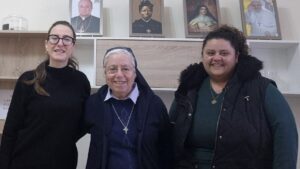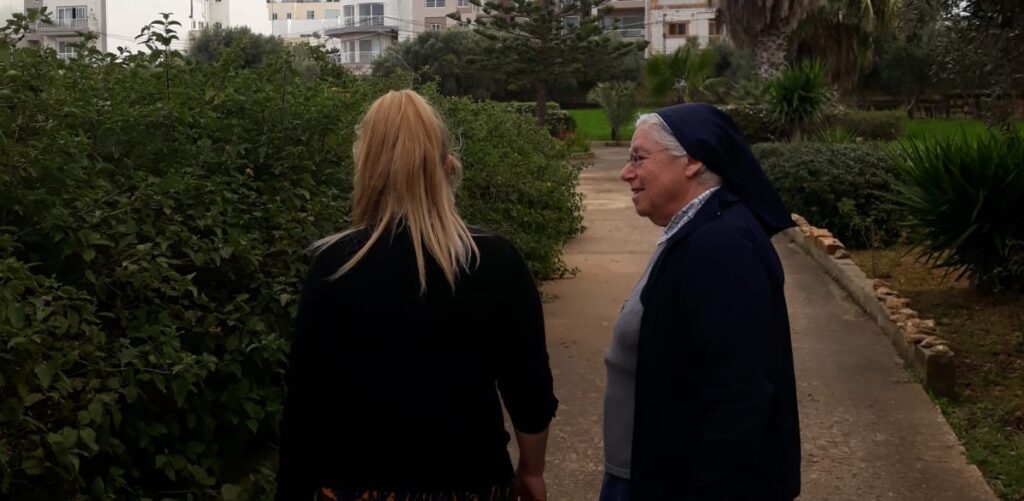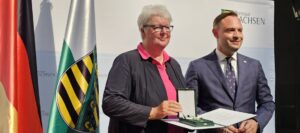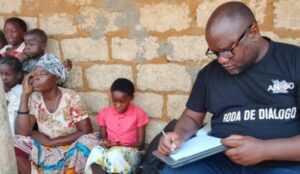To mark the International Day of Prayer Against Human Trafficking, Liam Michael Quinn, Congregational Communications Manager, Rome, interviewed Sr. Margaret Gonzi on her involvement with the RENATE network
How did you come to be involved with RENATE?
The foundress of RENATE, Sr. Imelda Poole MLW, invited me in 2015 to serve as a representative from Malta on their Working Board. This group is made up of religious men and women and lay partners from the 31 countries across Europe; we meet annually to reflect on our collective work, strategize, and make informed decisions on how to combat human trafficking in Europe.
 Before joining RENATE, I was unaware of the full extent of the inhumanity, cruelty, and brutality involved in the exploitation of people as slaves and commodities—whether through sexual exploitation, domestic servitude, forced labor, or even organ harvesting.
Before joining RENATE, I was unaware of the full extent of the inhumanity, cruelty, and brutality involved in the exploitation of people as slaves and commodities—whether through sexual exploitation, domestic servitude, forced labor, or even organ harvesting.
As a RENATE Working Board member, I have had the privilege of attending board meetings across various European countries, where I met religious sisters and lay partners working with courage and deep compassion for the most vulnerable. Through these encounters, I have come to understand the horrors that trafficked persons endure.
What is your experience of human trafficking in Malta?
The escalating migration situation in Malta has significantly impacted our work. As the Malta Financial Intelligence Analysis Unit (FIAU) report on Human Trafficking for 2024 points out, people who are willingly smuggled across borders may find themselves vulnerable to traffickers who exploit their desperation.
In human smuggling, the transport itself is the source of profit, whereas in human trafficking, profits are generated by the exploitation of individuals following their transportation, recruitment, or transfer stage. Nevertheless, despite being different concepts, human smuggling can quickly evolve into trafficking, where individuals are exploited for forced labor, sexual exploitation, or worse.
In Malta, the Good Shepherd Sisters’ Dar Merhba Bik Foundation offers two residential services for female victims and survivors of domestic violence and gender-based violence: Dar Merħba Bik and Dar Santa Bakhita. As a volunteer at both shelters, I offer support to women from many different countries, such as Ukraine, Albania, Nigeria, and the Philippines, who are often victims of domestic violence and trafficking. In 2024, for example, 62 women and 65 children found refuge with us.
 Among these women, two were victims of trafficking and were forced to work in a brothel. They received shelter at our facility for safety as they had to give testimony in court. The Trafficking in Persons Report (TIP) for Malta highlights that domestic violence often creates conditions that make individuals more susceptible to trafficking, and this is something we see firsthand. Each day, we work to empower these women, irrespective of their background, to regain their dignity and overcome their trauma.
Among these women, two were victims of trafficking and were forced to work in a brothel. They received shelter at our facility for safety as they had to give testimony in court. The Trafficking in Persons Report (TIP) for Malta highlights that domestic violence often creates conditions that make individuals more susceptible to trafficking, and this is something we see firsthand. Each day, we work to empower these women, irrespective of their background, to regain their dignity and overcome their trauma.
In 2019, I carried out research on the causes and outcomes of human trafficking in Malta for the research-based report RENATE Mapping Exercise: Child Trafficking in Europe. This study examines the extent, trends, and responses to child trafficking across various European countries, including Malta; it highlights the vulnerabilities of children, identifies key trafficking routes, and provides recommendations for prevention, protection, and policy advocacy.
Some European countries are leaning towards decriminalizing prostitution, what do you feel about this?
I have witnessed firsthand the devastating consequences of decriminalizing prostitution, which falsely presents it as a normal profession. In Germany, for example, where prostitution was decriminalized, brothels multiplied rapidly, worsening conditions for women who were paid less while facing greater dangers. Prostitution is trafficking, as it is never a truly free choice.
In recent years, there were discussions about decriminalizing prostitution in Malta. As an NGO, we actively supported those who spoke out against it. I firmly believe we must be vigilant and proactive, as Pope Francis urges—not only praying but also taking action when we recognize signs of exploitation. Victims may appear emaciated, have bruises or physical injuries, show signs of coercive control (even in speech), and live in constant fear.
To combat this grave injustice, we must advocate for stricter laws that penalize clients and reduce demand, ensuring that vulnerable individuals are protected rather than exploited.
How do we prevent human trafficking as a society?
I’ve met so many courageous women who have dedicated their lives to ending human trafficking. These experiences have shaped my approach to the issue and have inspired me to continue supporting survivors and advocating for systemic change. We all have a role to play in preventing human trafficking by staying vigilant, educating others, and working towards a society where exploitation is no longer tolerated. Every life is valuable, and each effort, no matter how small, makes a difference.
*RENATE (Religious in Europe Networking Against Trafficking and Exploitation), RENATE brings together religious and lay partners from 31 European countries to collaborate on efforts to protect victims, raise awareness, and foster systemic change.



